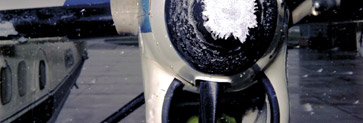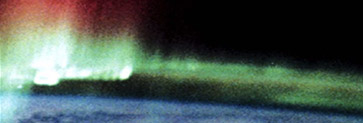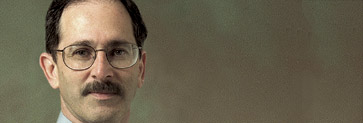By Denise Lee
In November 2001, the APPL Knowledge Sharing Initiative introduced a new product, the Transfer Wisdom Workshop. The idea was to give practitioners at each of the NASA centers the opportunity to engage in a knowledge sharing activity.
You know the feeling: you throw a party, invite a lot of people and you pray they show up. When we planned one of our first Transfer Wisdom Workshops (TWWs) at Goddard Space Flight Center, we expected to run a workshop with 25-30 people. Instead, only five people from Goddard had entered the room by the time we were supposed to start.
It’s hard to “share” knowledge when you don’t have people there to do the sharing, but you can only clear your throat so many times and say, “Maybe we should wait another ten minutes and see if a few more people get here.” Eventually, we got things underway.
TWWs focus on practitioners’ stories about their work experiences. We craft the stories we discuss and the questions we ask to bring out concrete examples of best practices and lessons learned. Our aim is to help the men and women who work on NASA projects step away from their work for a moment in order to better understand it, learn from it and then share what they have learned with others. By the end of a workshop, we have participants familiar enough with the concept of sharing knowledge through narratives that they write their own stories.
Though we had only a handful of participants at that first Goddard workshop, we engaged them in lively discussions and, by all accounts, they left feeling that they had spent their time productively and had learned a great deal from one another. We had done a solid job running the workshop—but it was apparent that we had done a poor job recruiting participants.
At a coffee shop not far from Goddard, the Knowledge Sharing (KS) team gathered for a debriefing. I got into a discussion with Dr. Alexander Laufer (Editor-in-Chief of ASK and creator of the TWW concept) about our planning strategy. Alex’s idea had been to go to each of the Centers and spend face-to-face time recruiting KS affiliates who would, in turn, sell the workshop for us. I pointed out that the plan sounded great in theory, but our affiliates were all busy people, top-notch project managers themselves, and they had precious little time to tout our initiative and make sure chairs were filled at our workshops.
I suggested that rather than relying on affiliates, I should “work” each Center to guarantee we had an adequate turnout. Alex argued that I wouldn’t know how to identify the right people. I countered that if we found ourselves on the morning of a workshop not knowing how many people were going to walk through the door, then we weren’t doing a good job marketing our program.
I believed that if I had more influence over signing up workshop participants, then I could make the process work. In fact, I promised that I would. I didn’t have anything to back me up other than my confidence in the philosophies we were teaching and my belief in the value of the TWWs. We simply had to do a better job of getting our message out there.
To my surprise, Alex came to me the next day and told me that he thought my approach to the problem—recognizing the need for hands-on marketing—was creative and might just work. He had to be willing to accept a risk, but project managers have to do that all the time. He gave me the go ahead.
Next Stop, Florida
Our next workshop was at Kennedy Space Center in Florida. Two months before the workshop, I went with Michelle Collins (then NASA’s KS project manager and someone who had spent most of her NASA career at Kennedy), and we walked the halls of the Center, talking with experienced project managers we knew from previous KS activities as well as managers who had been recommended to us. We met with 30 people in two days.
We introduced ourselves, gave an overview of the initiative and asked the managers for the names of people we should invite to the workshop. Then we asked them to encourage people on their projects to attend. We only requested 15-minute meetings, because we knew that the only way to get on a busy manager’s calendar was to ask for a brief meeting and to honor that timeframe.
This idea of asking experienced project managers to recommend younger project managers for the Workshop goes along with our vision of knowledge sharing as a grassroots initiative. If young project managers get a form letter from NASA Headquarters suggesting they consider attending a new program, how likely are they to take time away from a heavy workload? If a project manager they know and respect tells them that it’s a good thing to do, they’re a lot more likely to go.
The people we’re trying to get to come to the workshop aren’t necessarily project managers or even people on a project management career track. We’re targeting the team of people who work on a project, trying to get them to embrace the philosophy of knowledge sharing and put to use some of its practices and lessons. The idea is that projects have many components—for instance, procurement, systems engineering and human resources. All the different disciplines contribute to a project.
On the same visit that we spoke with project managers, we identified a champion in Training and Development at Kennedy, Tim Gormley. The idea was to cultivate a local champion because we were only going to be on site for two days. We sold Tim on the concept and he stayed with us every step of the way.
RSVPs for the workshop started coming in almost immediately. I didn’t just let an RSVP drop into my email box. I called each person back and said, “I received your RSVP. Thank you so much. We are looking forward to meeting you and introducing you to the Knowledge Sharing Initiative.”
How many workshops do you sign up for where someone calls you? Where you talk to the person who’s actually going to run the workshop and they say, “I’m really looking forward to meeting you”? I tried to establish a relationship from the moment someone first heard from me. And from that moment on, I understood that my credibility was on the line.
Show time
The day of the Kennedy workshop, I had a knot in my stomach before people arrived. But as they trickled in, first alone and then in groups of two and three, I knew it was going to be a good day. And it was. By the time we got underway, we had 26 participants in the room.
TWWs use the stories in ASK Magazine as a starting point. At the Kennedy workshop, people began reading the story we had given them and silence fell over the room. Slowly, as people finished reading, we heard the murmuring of conversations starting up in the small groups we had set up.
People read at different speeds, and the sound of their voices grew as time passed, until the entire room was discussing the stories and leveraging the knowledge in the stories to talk about their own work. Lessons were continuously being generated and shared, generated and shared.
As I watched people talking at that first Kennedy TWW, I realized that the workshops themselves are the fun part of my job. The material we present speaks for itself once we get participants through the door. Our challenge is speaking for the material in advance, so that people have the opportunity to experience it.
Transfer Wisdom Workshops: Three Stories.









